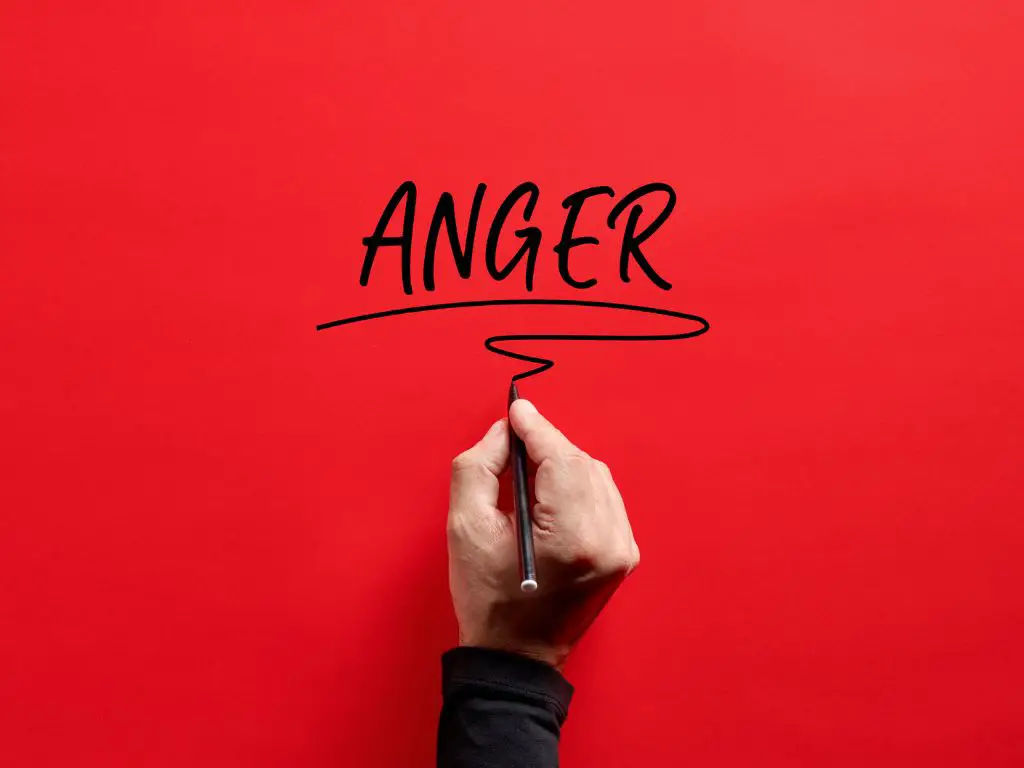Anger is a natural human emotion that can serve as a signal that something is wrong or that our boundaries are being violated. In this sense, anger can be a healthy and appropriate response to certain situations. For example, if someone is hurting us or our loved ones, feeling angry can motivate us to take action to protect ourselves and our loved ones.
However, when anger is not managed in a healthy and constructive way, it can become harmful. When we allow our anger to control our actions and reactions, it can lead to aggressive or violent behavior, which can harm ourselves and others. It can also lead to feelings of resentment, bitterness, and hate, which can poison our relationships and damage our mental and physical health. Lets find out what happens when you get angry too much and what you can do about it.
What happens when you get angry too much
When you get angry too much, it can have a number of negative effects on your physical and mental health, as well as your relationships with others.

Here is a detailed look at what happens when you get angry too much:
- Physical effects: Frequent anger can have a negative impact on your physical health. It can raise your heart rate and blood pressure, leading to an increased risk of heart disease and stroke. It can also lead to muscle tension, headaches, and other physical symptoms.
- Mental effects: Being angry too often can also have a negative impact on your mental health. It can lead to feelings of anxiety and depression, as well as problems with concentration and decision-making. It can also make you more prone to irritability, impatience, and other negative emotions.
- Relationship effects: When you get angry too much, it can also have a negative impact on your relationships with others. Your loved ones may become distant or avoidant, which can lead to feelings of isolation and loneliness. Your friends and colleagues may also find it difficult to be around you, which can make it hard to form and maintain healthy relationships.
- Social effects: Being angry too often can also have negative effects on your social life. You may find it difficult to make new friends, or you may struggle to maintain existing friendships. You may also be less likely to engage in social activities, which can lead to feelings of isolation and disconnection.

Why do I get so angry over little things
There are many possible reasons why someone might get angry over little things. Some common reasons include:
- Unmet needs: When our basic needs are not met, it can lead to feelings of frustration and anger. For example, if we are constantly hungry, tired, or stressed, we may be more prone to getting angry over little things.
- Unresolved issues: If we have unresolved issues or unresolved conflicts with others, we may be more prone to getting angry over little things. For example, if we have unresolved feelings of hurt, betrayal, or resentment, we may be more likely to get angry when things don’t go our way.
- High expectations: If we have high expectations for ourselves and others, we may be more likely to get angry when things don’t go as planned. For example, if we expect ourselves and others to always be perfect, we may become angry when we or others make mistakes or fall short of our expectations.
- Poor emotional regulation: If we have difficulty regulating our emotions, we may be more likely to get angry over little things. For example, if we are quick to become frustrated or irritable, we may be more likely to get angry when things don’t go our way.

There are many possible reasons why someone might get angry over little things. It’s important to identify the underlying causes of our anger and work on addressing them in order to manage our anger in a healthy and constructive way.
How anger affects your brain and body
When we experience anger, it triggers a response in our brain and body that prepares us to take action. This response is known as the “fight or flight” response, and it involves the release of hormones like adrenaline and cortisol.
These hormones increase our heart rate and blood pressure, and they cause our muscles to tense up. This prepares us to either fight off a perceived threat or to run away from it. While this response can be helpful in certain situations, it can also have negative effects on our brain and body.
For example, chronic or prolonged anger can lead to an increase in heart rate and blood pressure, which can increase the risk of heart disease and stroke. It can also lead to muscle tension, headaches, and other physical symptoms.

In addition to these physical effects, anger can also have negative effects on our mental health. It can cause anxiety and depression, and affect our concentration and decision-making process. It can also make us more irritabile, impatient, and increase in our negative emotions.
Anger can have both positive and negative effects on our brain and body. While it can serve as a signal to take action and protect ourselves, it can also have harmful effects on our physical and mental health if it is not managed in a healthy and constructive way.
8 ways to overcome anger

Here are eight ways to overcome anger:
- Take a deep breath: When you start to feel angry, take a deep breath and try to focus on your breath. This can help to calm your body and mind, and it can also give you a moment to pause and think before reacting.
- Count to 10: Counting to 10 can also be a helpful way to manage your anger. It gives you a moment to pause and think, and it can also help to calm your body and mind.
- Use positive self-talk: Instead of focusing on the things that are making you angry, try to focus on positive and constructive thoughts. This can help to reframe your thinking and put things into perspective.
- Get some exercise: Physical activity can be a great way to release anger and frustration. Going for a walk, a run, or a swim can help to calm your body and mind, and it can also help to improve your mood.
- Talk to someone: If you’re feeling overwhelmed by anger, try talking to someone about it. A friend, family member, or counselor can be a great source of support and can help you to work through your feelings in a healthy and constructive way.
- Write it down: Writing down your thoughts and feelings can also be a helpful way to manage anger. It can help you to clarify your thoughts and feelings, and it can also be a way to release your anger in a healthy and constructive way.
- Practice relaxation techniques: There are many relaxation techniques that can help to calm your body and mind, such as deep breathing, meditation, or progressive muscle relaxation. These techniques can help to reduce feelings of anger and improve your overall well-being.
- Seek professional help: If you find that you’re struggling to manage your anger, consider seeking professional help. A counselor or therapist can provide you with the tools and support you need to manage your anger in a healthy and constructive way.
Overall, getting angry too much can have a number of negative effects on your physical, mental, and social health. It’s important to find healthy ways to manage your anger so that you can avoid these negative consequences and maintain healthy, happy relationships with those around you. This may include practicing relaxation techniques, seeking professional help, or finding ways to express your anger in a healthy and constructive way.



